The details of Manchester United's weekly salary to Mbeumo are exposed! Tied with Cunha for fourth in the team, next year may become the maximum salary
The British media generally believe that Brentford's Brian Mbeumo has chosen to move to Manchester United, and this is naturally not simply because he loves the Red Devils so much. Sir Jim Ratcliffe's INEOS team is reported to have beaten rivals such as Champions League qualified Newcastle United with generous packages.
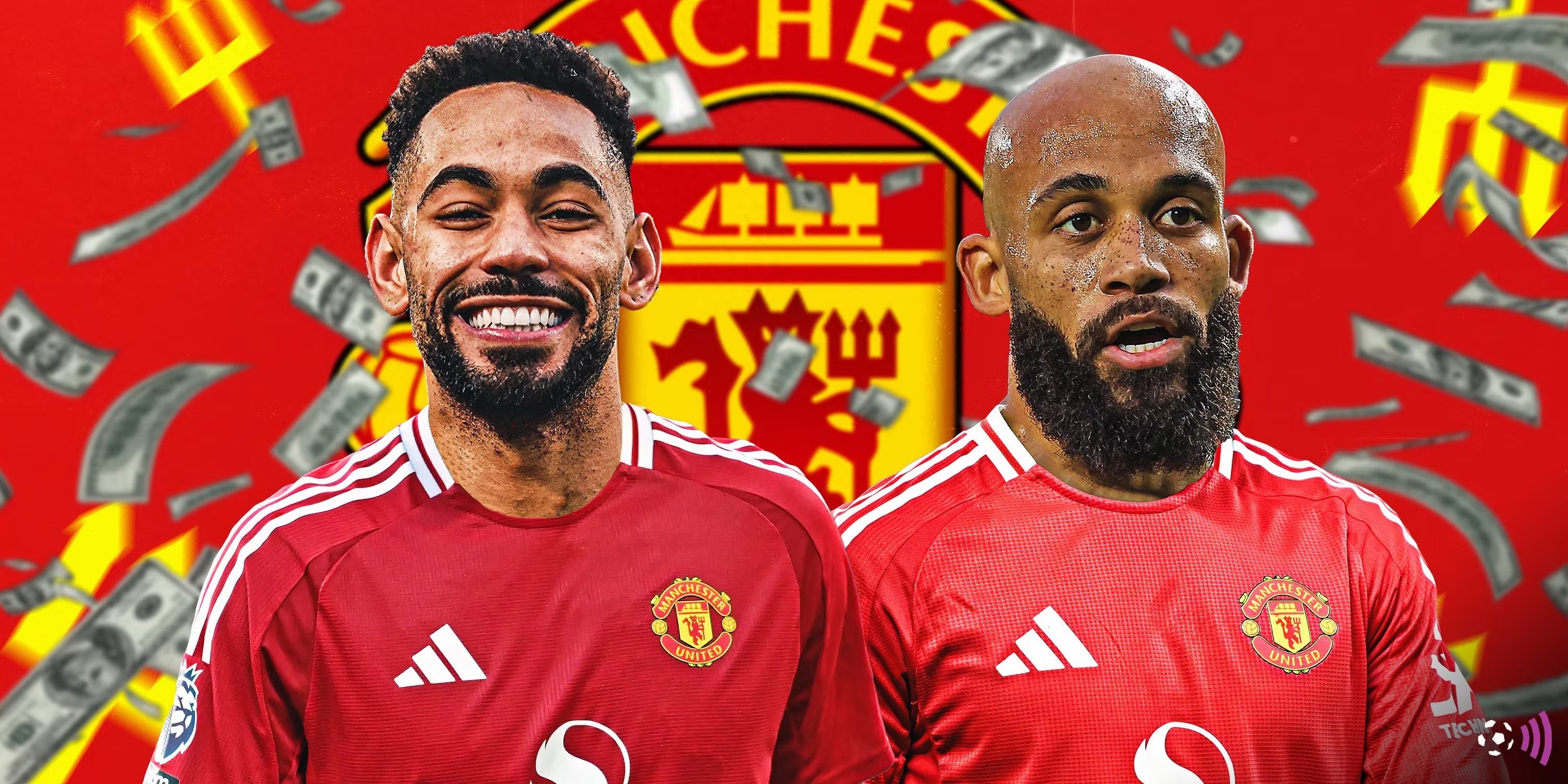
Like Manchester United, Newcastle were willing to pay a transfer fee of more than £50 million, but the Magpies' hopes of a deal were dashed after United's salary offer to the 25-year-old Cameroonian right winger was revealed. While Eddie Howe's side have scouted Mbeumo extensively and watched him play on a number of occasions since January, Newcastle, despite their Saudi Arabian oil financiers, are unable to spend their money freely, subject to the Premier League's PSR profitability and sustainability rules.
It is said that Manchester United's weekly salary for Mbeumo is the same as that of the Saudi Pro League clubs, reaching 200,000 pounds! Unlike Manchester United, who chose to take the plunge, Newcastle decided to give up. Coach Eddie Howe made it clear at the end of the season: "I think wages and transfer fees will be difficult for us, although we would love to get big players. I was well aware that it would be much easier to bring in a ready-made, mature world-class player, but during my tenure we couldn't do that because we were financially constrained. We're not like other clubs, so we just have to bring in some young players and develop them into talent."
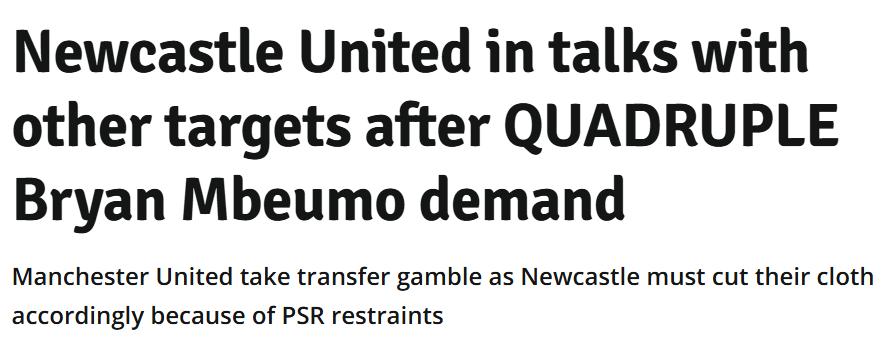
It is reported that Arsenal and Tottenham were also deterred by Mbeumo's weekly salary demand, and they also contacted their agents, but the latter told them that Mbeumo, who has scored 20 Premier League goals this season, wants to earn more than four times his weekly salary at Brentford. According to the data, Mbeumo's weekly salary at Brentford is £45,000.
Manchester United, who have had a poor season this season, decided to gamble on the future, so they agreed to the high salary demands of Cunha and Mbeumo and went all out to restructure Ruben Amorim in his attacking line. In this regard, Eddie Howe said that he would not follow, and they had other options, which would be based on the financial situation. Newcastle's current maximum salary is just £150,000, with captain Bruno Guimaraes and wingers Anthony Gordon and Joelinton both at that amount. Sooner or later, they will break that cap, but that will require a world-class superstar who is stronger than Mbeumo.
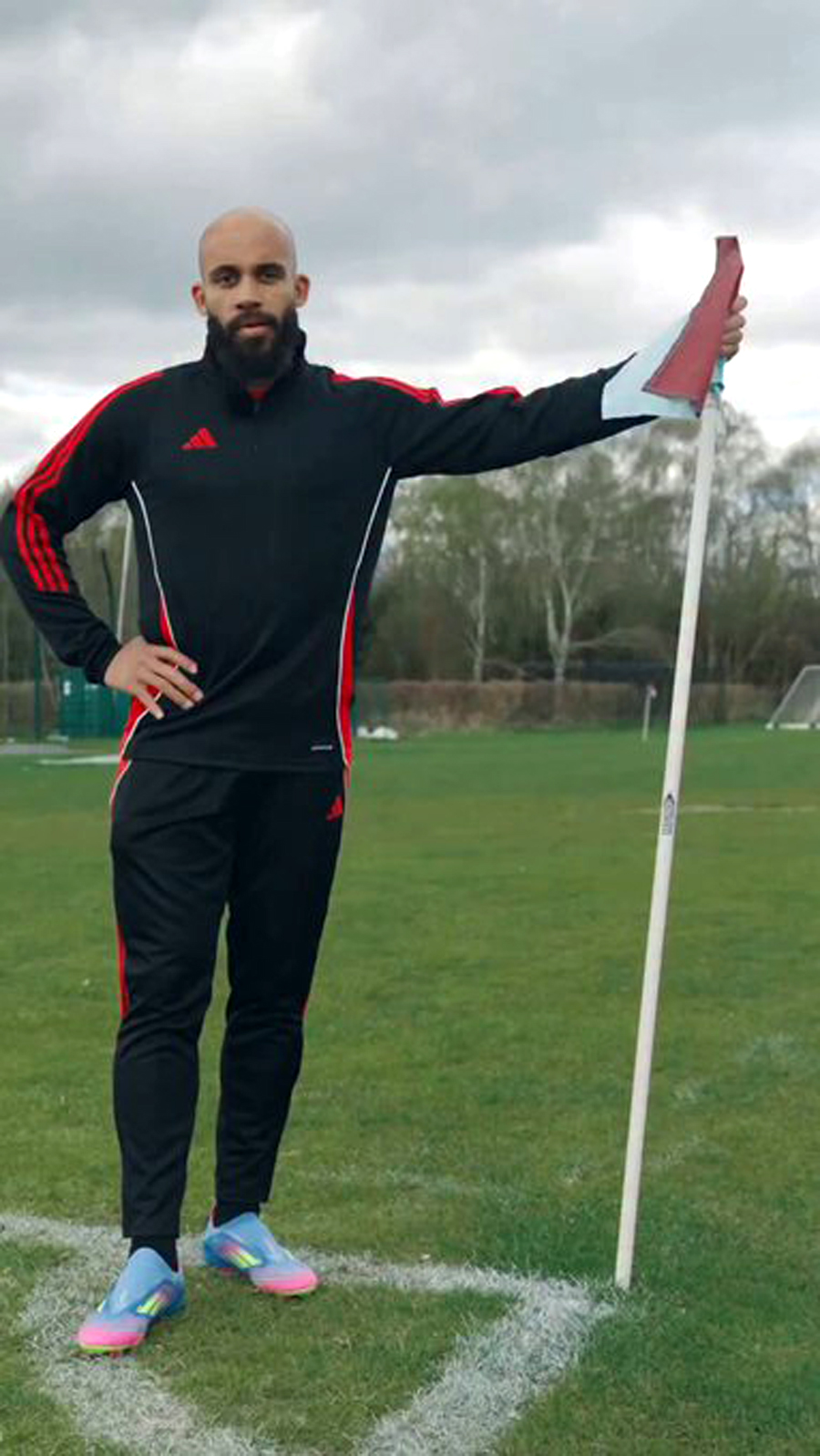
In contrast, Manchester United's dressing room wage structure is already quite chaotic. Although Rajue hopes to reduce salary expenses, the reality is cruel, if the Red Devils don't give good treatment at the moment, who will choose to join? Even if they had a "child dream", they would have refused to go to Old Trafford, which is now considered a new star black hole if they did not have a good income.
At the same time, United believe that if the existing redundant players such as Marcus Rashford, Jadon Sancho and Antony are removed, the club can fully afford to pay Cunha and Mbeumo the level of income, especially as some of their income will be based on performance. Rashford is currently earning £325,000 a week, Jadon Sancho is £250,000 and Antony is £200,000. If they all leave, even with the high-paid signings of Cunha and Mbeumo, the total salary bill could fall significantly.
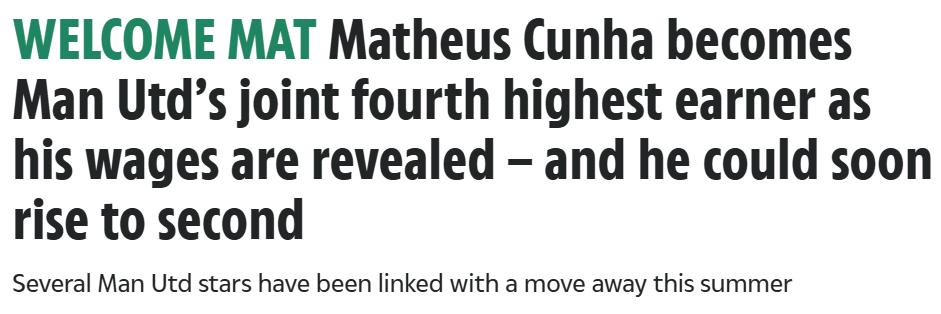
Based on Cunha and Mbeumo's rumoured £200,000-a-week earnings, they are currently joint-fourth in the squad, level with Antony and behind Casemiro (£350,000), Marcus Rashford (£325,000), Bruno Fernandes (£300,000), Jadon Sancho and Mason Mount (both £250,000).
However, if United purge Marcus Rashford and Jadon Sancho this summer and sell B Fee, they will become the second most paid player, and when the "Fat Tiger" leaves at the end of his contract next year, they will try to sell Mount, and the £200,000 a week salary will be the team's maximum salary.
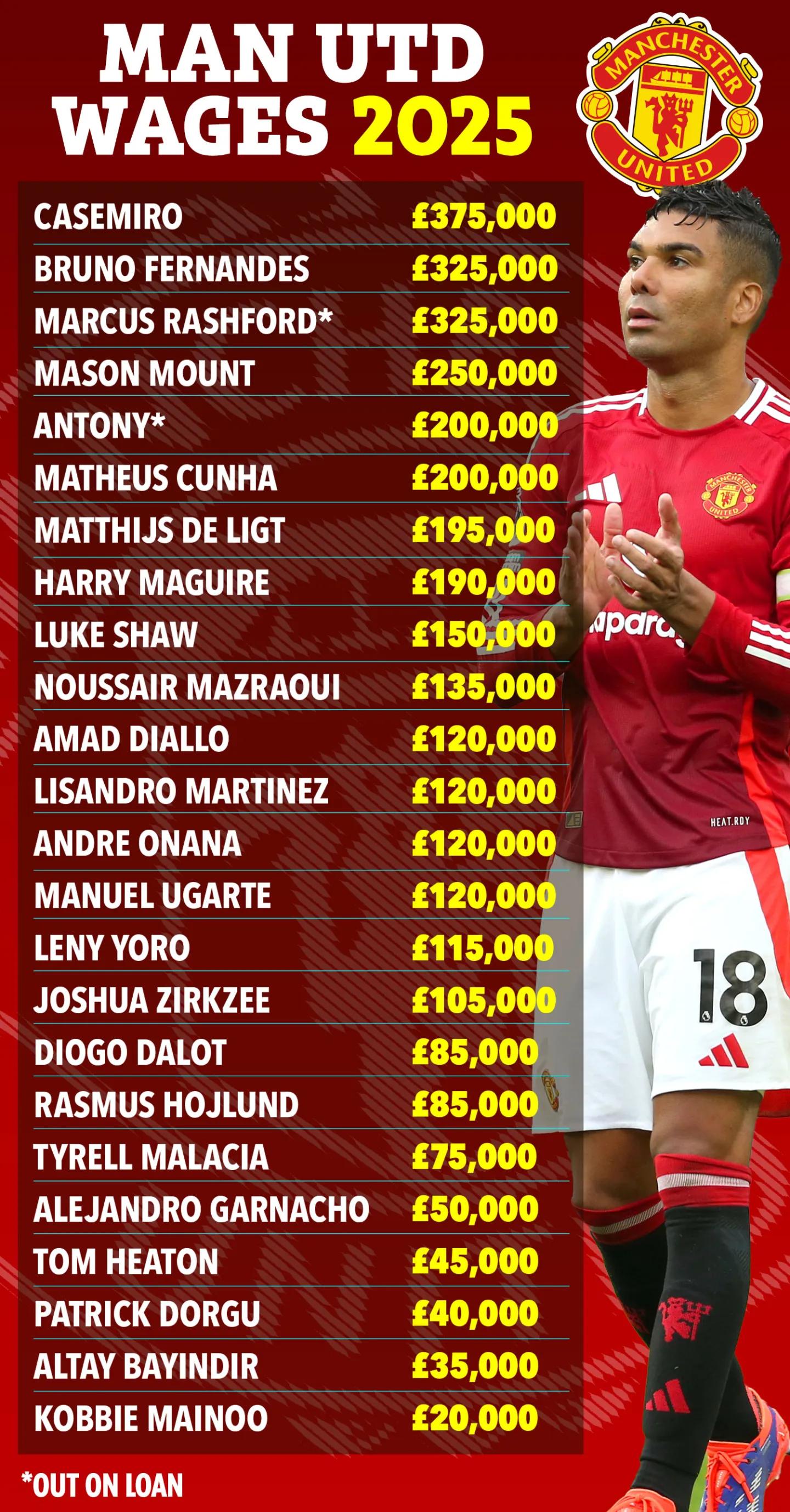
If B Fei stays, then his income will be the highest in the team in the future, followed by strikers Cunha, Mbeumo and other strikers. That's it for United's new wage structure, which is still on the high side, but will be more reasonable than it is currently on.


Wonderfulshortvideo
Marcus Rashford 💀


User PlaymakerHub has posted a video.


The best goals from Matchday 6 🙌 do you agree?


Brilliant performances in Matchday 5 and 6 🤩


We’re so finished 😭








 Links
Links
 Contact
Contact
 App
App


